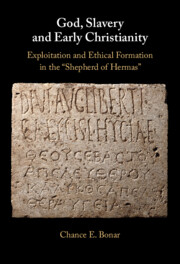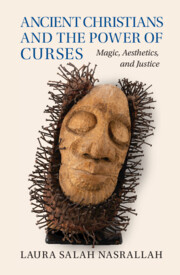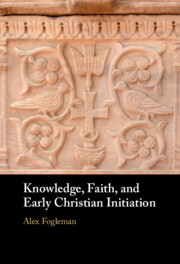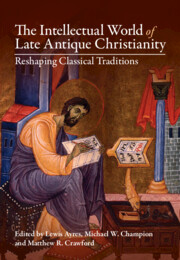God, Slavery, and Early Christianity
Ancient Christians understood themselves to be enslaved to God, an attitude that affected their ethics, theology, and self-understanding. This widespread belief is made especially clear in the Shepherd of Hermas, an overlooked early Christian text written by an enslaved person, which was nearly included in the New Testament. In this book, Chance Bonar provides a robust analysis of the ancient discourses and practices of slavery found in the Shepherd of Hermas. He shows how the text characterizes God's enslaved persons as useful, loyal property who could be put to work, surveilled, and disciplined throughout their lives – and the afterlife. Bonar also investigates the notion that God enslaved believers, which allowed the Shepherd to theorize key early Christian concepts more deeply and in light of ancient Mediterranean slavery. Bonar's study clarifies the depth to which early Christians were entrenched – intellectually, practically, and theologically – in Roman slave society. It also demonstrates how the Shepherd offers new approaches to early Christian literary and historical interpretation.
- Provides a robust analysis of the Shepherd of Hermas in terms of ancient discourses and practices of slavery
- Explores why early Christian scholarship has been hesitant to discuss slavery to God and other deities in antiquity
- Demonstrates how spirit possession was central to early Christian notions of enslavement to God
Reviews & endorsements
‘Bonar brings the weight of contemporary theory and cutting-edge research to bear on the logics of enslavement in the ancient Mediterranean broadly and in the Shepherd of Hermas particularly. His in-depth analysis makes this often-ignored text a generative site for properly situating Roman antiquity as entangled in the complicated, dehumanizing practices and legacies of enslavement. In as much as the West, especially the U.S., is similarly implicated, this volume is essential for identifying and confronting such legacies as they appear in the texts of early Christianities and in the contexts of our lives.’ Jeremy L. Williams, Author of Criminalization in Acts of the Apostles and Assistant Professor of New Testament at Brite Divinity School
‘In God, Slavery, and Early Christianity, Bonar reveals the Bible that could have been—if a popular early Christian text had been included. In the process, he uncovers the context of ancient Mediterranean slavery within which both the Shepherd of Hermas and the New Testament was written. Ancient enslavement, Bonar deduces, heavily influenced early Christian understandings of their relationship to God, faith, and subservience to a much higher degree than previously known. God, Slavery, and Early Christianity rehabilitates an ancient text often maligned in the modern era, to show how we might better understand the influential dynamics of power that flowed throughout the ancient world.’ Sarah E. Bond, Erling B. Holtsmark Associate Professor in the Classics
Product details
August 2025Hardback
9781009610629
320 pages
229 × 152 mm
Not yet published - available from August 2025
Table of Contents
- Introduction
- 1. Usefulness, loyalty, and property: characteristics of God's enslaved persons
- 2. 'Give me the little book': enslaved literate labor in the Shepherd
- 3. Possession and enslavement through the Holy spirit
- 4. Enslaved surveillance and Spirit-flesh symbiosis
- 5. Instrumental agency and ecclesiastical unity
- Conclusion
- Bibliography.






